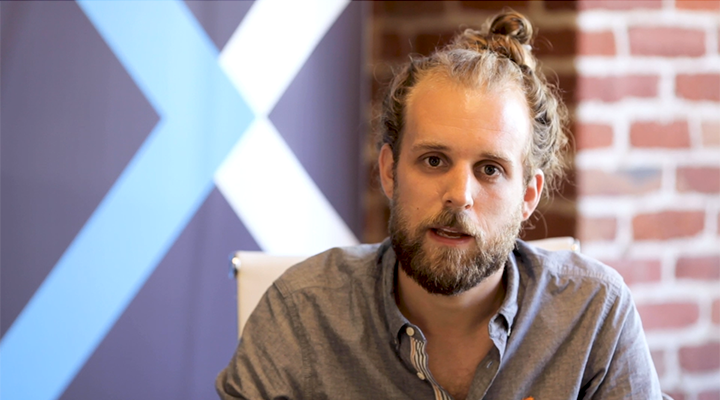CASE STUDY
We Doubled Enrollment for This School in Less Than a Year — Find Out Which Behavioral Science Principles Led to Our Success
When you work in online education, multiple hurdles stand between your students and enrollment. They need to feel inspired, both by your school and their own potential. They need to commit to investing in their future. Most of all, they need to not get spooked along the way.
Here at Next Step, we look to the latest research in Behavioral Science to create websites and other marketing campaigns that help companies, schools and universities connect with and motivate their users. In this article we’ll deconstruct a website rebuild we recently did for ICON Collective, which resulted in a 140% increase in users, 41% increase in page views, and doubled their enrollment in the first year alone.
![]()
After years in the industry, this music production school in L.A. already had a stellar reputation. Word of mouth marketing and a steady line of famous alum meant prospective students were willing to wait years to get into their brick and mortar school.
But their old website wasn’t resonating with users. We needed to bring this iconic school to life online.
We’ll share which Behavioral Science interventions we used and help you understand the key steps you need to take to strengthen your own school’s site or marketing campaign.
Spot trends in traits. Make it personal.
- Openness? High. A typical student enjoys novelty and adventure.
- Conscientiousness? Low. Detailed lists can feel stifling.
- Neuroticism? High. A typical student tends toward sensitive and can be easily stressed.
When speaking to your user, recognize their best selves.
Identity Marketing. Help them see what’s inside.
When less is more. Adding a sense of urgency.
This may not be the case for all institutions, but if you’re a specialized school, you might be consistently attracting a specific type of student. Ask your admissions teams and your teachers to do an informal personality assessment on their most typical students. Having this image in mind will help you craft highly personal messaging.
In the case of ICON, we did the following personality assessment on the target market:
By including these nuances, you’ll be able to add elements that speak directly to the persona you’re writing for. For example, knowing that your students tend toward adventure, but are easily stressed, you’ll balance making a case toward pursuing your dreams with the supportive community that’s so essential to success.
![]()
When you’re speaking to your audience, it’s essential to know what words and concepts will inspire them. According to the Behavioral Science concept called labeling, people will rise up to act in accordance with the labels you give them. Labeling someone as a good citizen, for example, makes it a bit more likely that they’ll act like one by voting.
What’s critical for your campaign’s success is knowing which labels will resonate with your student’s sense of self, while also inspiring action. It’s not just a question of picking out what you’d like them to respond to. You need to leave your bubble behind and actually interview your students. Ask them open ended questions about themselves and listen closely for values.
When we did those interviews, we discovered powerful words like: Driven. Passion. Artist. Inspired. Because they’re authentically sourced, these labels have a much bigger chance of triggering the sense of belonging and inspiration in prospects.
![]()
Remember the real beauty campaign by Dove? The soap bar changed the conversation about beauty and empowered women around the world by recognizing that real bodies are beautiful. When Troy Campbell, one of our Behavioral Science advisors, reviewed ICON’s site, he pointed out that we were using a similar technique called identity marketing. Instead of convincing people to change, identity marketing recognizes who you already are and offers a solution that helps you unlock even more of the elements you already have.
“All research shows that people don’t want to entirely change,” says Campbell. “They want to become the person they’ve always meant to be. Jason Riis did an experiment and found that people were more likely to take a medicine when they were told it was unlocking a trait, rather than adding that trait.”
![]()
We know that people want something more when it’s unique or has only limited availability. Think about your own experience: when you’re online thinking about booking a hotel room and you see that 20 other people are also looking at that same room, don’t you feel a surge of adrenaline? The fear that if you don’t act it might get taken away?
We certainly don’t want to go that far with these students, but we do want to remind them about scarcity. Not only does it prevent them from taking the school for granted, but it aligns with the school’s authentic drive to fill the class with passionate students and to provide high quality support.
Introducing scarcity can be as simple as these talking points:
![]()
When you put together your next campaign, keep these critical elements in mind. Start with deeply knowing your persona and respecting their highest values. Show them how your solution is helping them become more of who they already are. Create a site that speaks directly to the heart of your user.
Results:
The new website for ICON Collective resulted in a 140% increase in users, 40% increase in page views, and online student enrollment doubled in the first year alone.

“The site is doing exactly as we had hoped.”
Christopher Wight, CEO, Icon Collective







